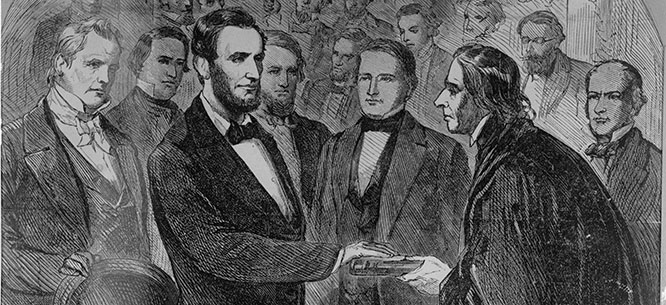We Are Already Defying the Supreme Court
The risks of calling on politicians to push back against the court must be weighed against the present reality of a malign judicial dictatorship.

The idea of disregarding the U.S. Supreme Court—simply ignoring its decisions—has become a flash point. “Americans will not tolerate defiance of the institution and the rule of law,” remarked one conservative law professor, irate about the possibility that President Joe Biden or other political officials might engage in such behavior. Who has defied the Supreme Court in the past? If leading examples include Andrew Jackson the ethnic cleansing populist or George Wallace the Southern segregationist, the answer has to be: no one good.
Recently, when two left-leaning professors, Aaron Belkin and Mark Tushnet, called for a modest and partial form of disobedience in response to the mounting damage of Supreme Court precedents, conservatives rained opprobrium on them. Disregarding a judgment of the Supreme Court is “a fast track to tyranny,” if not “thuggery” pure and simple, the right raged. The rule of law depends on compliance with the justices’ commands.
Yet liberals did not exactly rally to the cause of disobedience. If anything, many seem even more committed than ever to their own anxieties, considering how crucial obedience has been (at least according to liberal orthodoxy) to advancing civil rights in the face of sometimes recalcitrant political forces. The recent disciplining of the Alabama legislature, after it pushed back on a federal court decision invalidating its racially gerrymandered system, provides a case in point.
Conservatives and liberals alike, then, have contributed to a popular narrative of a “norm of compliance” across U.S. history, a narrative that functions to make disobedience seem unthinkable. But this narrative is false. It obscures the reality of ordinary noncompliance that has, past and present, defined the scope of judicial authority.
Opposition to the Supreme Court has occurred in myriad forms. Feigning horror at the idea is a con, and a pernicious one at that. To pretend like there aren’t multiple styles of noncompliance gives the impression that resistance is beyond the pale. This, in turn, prevents us from seeing how noncompliance has already escalated, and from grasping lucidly the possibility and the stakes of taking it further.
Presidents have not openly defied a federal court order since the turn of the twentieth century, but the record of open presidential defiance goes back to the beginning of U.S. history. And it is morally complicated.
In Marbury v. Madison—the 1803 decision widely, if erroneously, understood to have established the power of judicial review for federal courts—Thomas Jefferson credibly threatened to defy any ju…
Subscribe now to read the full article
Online OnlyFor just $19.95 a year, get access to new issues and decades’ worth of archives on our site.
|
Print + OnlineFor $35 a year, get new issues delivered to your door and access to our full online archives.
|
Already a subscriber? Log in:
Source: dissentmagazine.org


